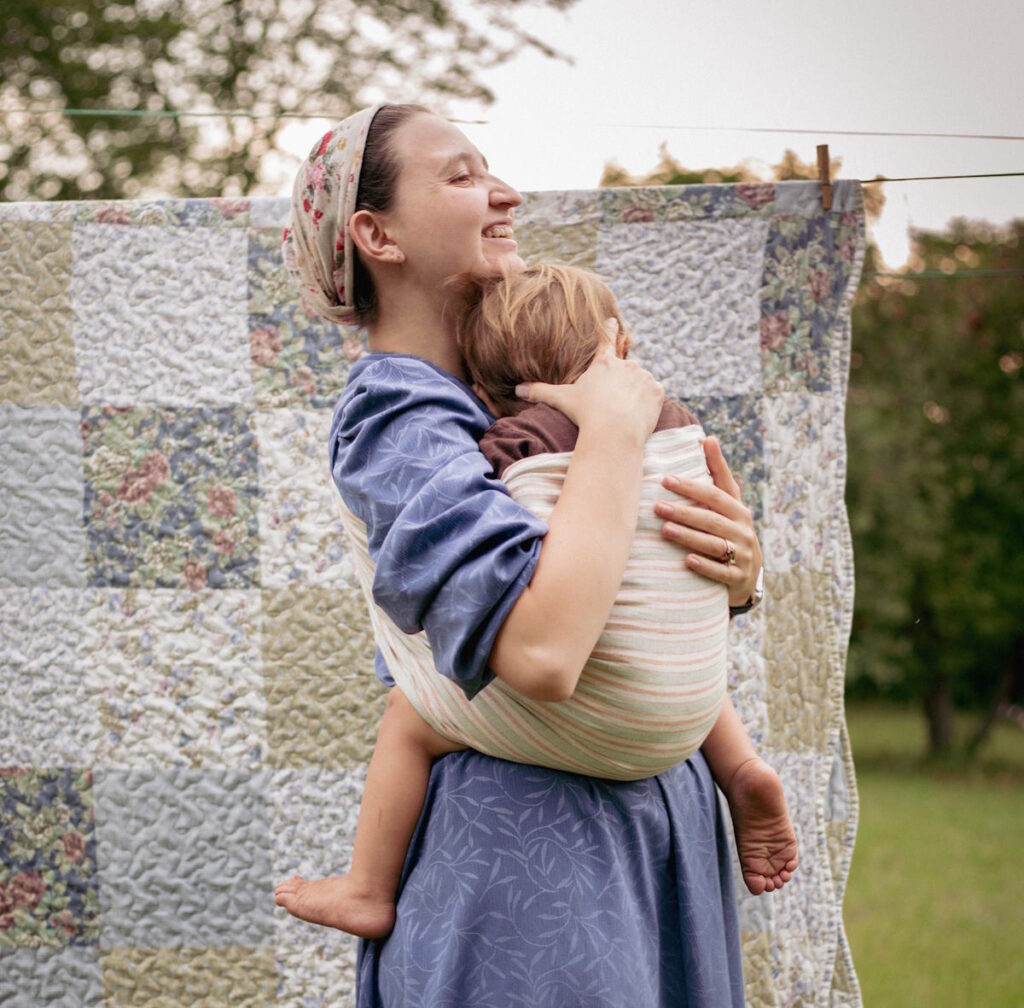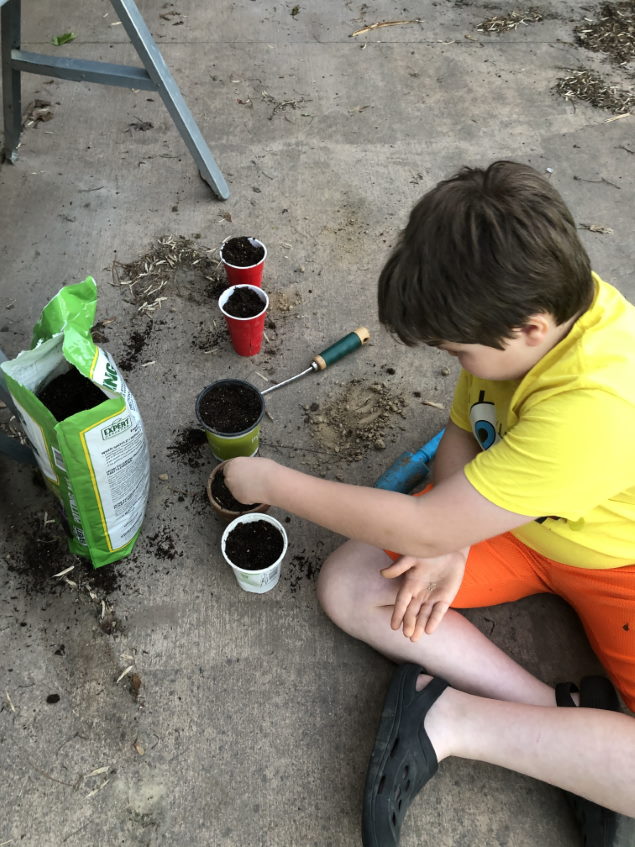My toddler always wants to be carried

Is this a familiar scenario for you? You’re taking a nice walk with your family and your 3-year-old says “Daddy please hold me”. I imagine this happens a lot to dads (and moms). The need of your toddler always wants to be carried.
Why do our toddlers always want to be held?
As a father of 5 kids and having fostered many toddlers I can tell you that even though they are energetic and have no issue with walking, they always hang on to wanting to be held. Sure it’s cute when it’s time to go to bed and they want you to carry them to bed.
But when you are hiking around a lake and they are done with hiking it isn’t cute anymore. But it goes beyond that. Sometimes at the most random times, my youngest will want me to carry her. And I can remember my older boys wanting me to always hold them.
So why does your toddler always want to be carried?
They miss you

One of the biggest indicators is maybe they miss you. I’ve always noticed that when I am gone for the weekend or even maybe after a day of work they want to be held by daddy. For you, it was just a few hours or maybe a day or two. But in their mind, you were gone FOREVER.
I equate this to the same reaction your dog has when they see you after you have been gone for a while. Dogs have no sense of time whatsoever. And toddlers who are still developing concepts like telling time really haven’t grasped the concept of how long you were gone.
Looking for a toddler carrier? Check out this one from Amazon
https://amzn.to/4bOvFjs (Link goes to Amazon)
They are tired
Sometimes they really are just tired. Just like most toddlers need naps to be able to function their bodies are still adjusting to this whole life thing they got going on. They need rest and if you are taking a walk or they are playing hard they may just want you to hold them.
They also could be ready for a nap. My sons would always want momma to hold them when they got sleepy. And sometimes they would just fall asleep in her arms.
They are sick

This one shouldn’t be too hard to tell but you just know. They may be not as active and then they hit you with the “please hold me”. And it might not be a full-on sickness it could be some teeth coming in causing them pain or discomfort and they just need some love from dad.
Something scared them
This one has me always looking around. If my toddler runs up in panic and wants me to hold them I want to know immediately what startled them. This dad doesn’t play around with someone messing with my kids.
This one should be short-lived. They just need you to calm them down and typically once the fear subsides they will be back to playing like nothing happened.
Environmental changes
One thing I noticed is that when things change in my toddler’s environment they tend to get a bit more clingy. Switching to a new teacher at daycare or in some cases maybe you had to move. These big life changes can cause big emotions in our little ones and they just want that comfort and familiarity.
Or maybe there was a birth or adoption that changed your family dynamic. These changes can confuse and sometimes scare our toddlers. They want to feel safe so hanging on to you tightly might be their few moments of comfort.
What are some ways to combat your toddler always wanting to be held?
Gradual Transition to Independence
Encourage your toddler’s independent exploration by creating a safe and engaging environment with suitable toys. Start with short periods of solo play and gradually extend the time as they grow more comfortable. Offering positive reinforcement and praise for their independent efforts can boost their confidence.
Use a Toddler Carrier or Sling

Invest in a comfortable, ergonomic toddler carrier or sling that permits you to carry your child while keeping your hands available for tasks. This enables you to address your child’s need for closeness while continuing your daily activities.
But eventually, your toddler may be too much to handle in a sling or carrier. So you may have to explore other alternatives to keep them close while they transition away.
https://amzn.to/4bOvFjs (Link goes to Amazon)
Set Clear Expectations
Communicate with your toddler in simple terms to explain when you’ll carry them and when they can play independently. Consistency in both your words and actions will help them comprehend the routine and minimize confusion.
Just remember this will take time. Especially the younger they are because they are still not going to comprehend why dad can’t hold them.
Provide Alternatives
Introduce a cherished stuffed animal or comfort item that they can hold when they seek security but you’re unable to carry them. Having a transitional object can often offer comfort and reduce the need for constant carrying.
You can make this a game by telling them that the stuffed animal needs special attention and only they can comfort their bear. Change the item up if needed to prolong this course of action.
Engage in Interactive Play

Designate specific periods for interactive play, like peek-a-boo, tickling, or gentle roughhousing. These activities foster connection and engagement, lessening the desire for constant carrying.
Use a Stroller or Wagon
While outside, utilize a stroller or wagon to offer a change of scenery for your toddler, providing them a secure place to sit or stand.
This is also a good idea if you are taking a walk with them. When they get tired they may want to jump in the wagon and ride rather than you having to hold them.
https://amzn.to/4banRbz (Link goes to Amazon)
Offer Choices and Control
Empower your toddler by providing limited choices, such as asking if they want to walk while holding your hand or be carried. This gives them a sense of control and minimizes resistance.
Having choices for our toddlers gives them more control. And when they feel like they have more control some of the issues that make them want to be held go away.
Create a Comfortable Observing Spot
Design a cozy corner or cushioned area where your toddler can sit and observe while you work or do chores close by. Make it inviting with cushions, blankets, and their favorite toys.
In all reality, they want to be close but they don’t have to be held. If they can see you and still feel comfortable this is the end goal.
Plan Special Activities
Allocate one-on-one time for focused attention, like reading books, drawing, or building blocks together. Quality time satisfies their need for connection and reduces clinginess.
Remember the reason your toddler wants to be carried is they are looking for comfort and closeness to you. If you are not engaging enough they may think that bond is fading away.
Acknowledge Emotions
Validate your toddler’s feelings when they express a desire to be carried. Let them know you understand by saying something like, “I know you want to be close to me. Let’s sit together for a little while.”
Make sure they understand that your desire is to be close but they can still be close and not be carried.
Practice Patience and Empathy
Clinginess is often a temporary phase of toddler development. Be patient and offer reassurance, understanding that this phase is part of their growth.
Involve Them in Tasks

Include your toddler in simple activities such as stirring ingredients, sorting laundry, or watering plants. Their participation in daily tasks can make them feel valued and engaged.
You would be amazed at how many helpful things your toddlers can do when they are motivated to be next to you.
Remember, every child is unique, and what works for one may not work for another. Stay patient, adaptable, and attentive to your child’s needs as you strike a balance between meeting their need for closeness and fostering their independence.
Your child is not trying to drive you up the wall, they are just trying to understand what is going on in this big world when things just don’t seem right to them.
Do you have any tips or comments on why does my toddler always wants to be carried? Join us over on Twitter or Facebook or TikTok.
If you want to support us please consider following us on our social media platforms or clicking on the Amazon links above where we earn a very small commission on all sales.
